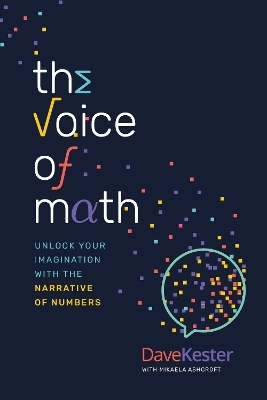
Density of Prime Divisors of Linear Recurrences
Seiten
1995
American Mathematical Society (Verlag)
9780821826102 (ISBN)
American Mathematical Society (Verlag)
9780821826102 (ISBN)
- Titel ist leider vergriffen;
keine Neuauflage - Artikel merken
A result due to Hasse says that, on average, 17 out of 24 consecutive primes will divide a number in the sequence $U_n = 2^n+1$. This book links Ballot with Hasse's method to the concept of the group associated with the set of second-order recurring sequences having the same characteristic polynomial.
A result due to Hasse says that, on average, 17 out of 24 consecutive primes will divide a number in the sequence $U_n = 2^n+1$. There are few sequences of integers for which this relative density can be computed exactly. In this work, Ballot links Hasse's method to the concept of the group associated with the set of second-order recurring sequences having the same characteristic polynomial and to the concept of the rank of prime division in a Lucas sequence. This combination of methods and ideas allows the establishment of new density results. Ballot also shows that this synthesis can be generalized to recurring sequences of any order, for which he also obtains new density results. All the results can be shown to be in close agreement with the densities computed using only a small set of primes. This well-written book is fairly elementary in nature and requires only some background in Galois theory and algebraic number theory.
A result due to Hasse says that, on average, 17 out of 24 consecutive primes will divide a number in the sequence $U_n = 2^n+1$. There are few sequences of integers for which this relative density can be computed exactly. In this work, Ballot links Hasse's method to the concept of the group associated with the set of second-order recurring sequences having the same characteristic polynomial and to the concept of the rank of prime division in a Lucas sequence. This combination of methods and ideas allows the establishment of new density results. Ballot also shows that this synthesis can be generalized to recurring sequences of any order, for which he also obtains new density results. All the results can be shown to be in close agreement with the densities computed using only a small set of primes. This well-written book is fairly elementary in nature and requires only some background in Galois theory and algebraic number theory.
Introduction General preliminaries Background material More about recurring sequences of order two A study of the cubic case Study of the general case $m/geq 2$ Appendix A-list of theorems Appendix B-list of symbols References.
| Erscheint lt. Verlag | 1.7.1995 |
|---|---|
| Reihe/Serie | Memoirs of the American Mathematical Society |
| Verlagsort | Providence |
| Sprache | englisch |
| Themenwelt | Mathematik / Informatik ► Mathematik ► Arithmetik / Zahlentheorie |
| ISBN-13 | 9780821826102 / 9780821826102 |
| Zustand | Neuware |
| Informationen gemäß Produktsicherheitsverordnung (GPSR) | |
| Haben Sie eine Frage zum Produkt? |
Mehr entdecken
aus dem Bereich
aus dem Bereich
Mengeneigenschaften im Muster der Universellen Gleichmäßigkeit im …
Buch | Spiralbindung (2025)
White, J (Verlag)
CHF 208,55
unlock your imagination with the narrative of numbers
Buch | Softcover (2024)
Advantage Media Group (Verlag)
CHF 27,90
Eine logische Beweisführung zur Lösung des 3n + 1-Problems
Buch | Softcover (2025)
BoD – Books on Demand (Verlag)
CHF 13,85


